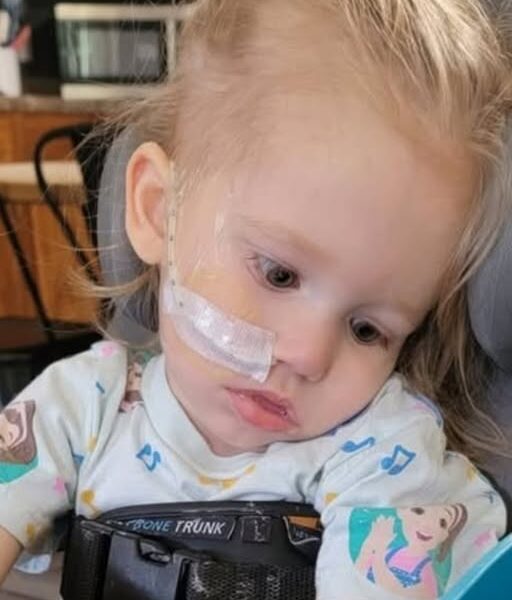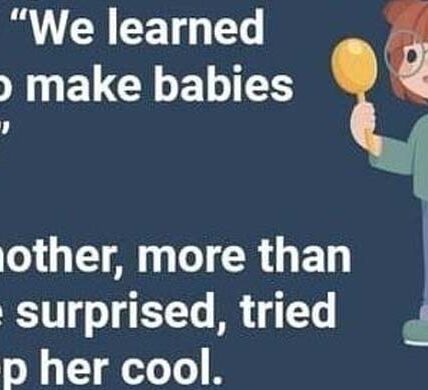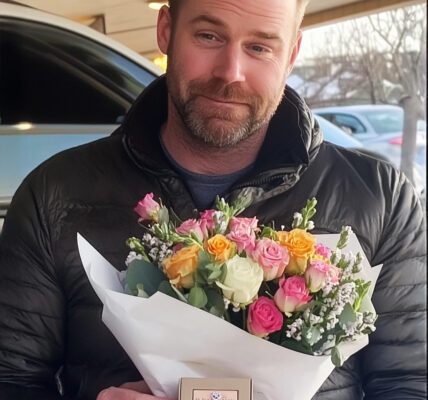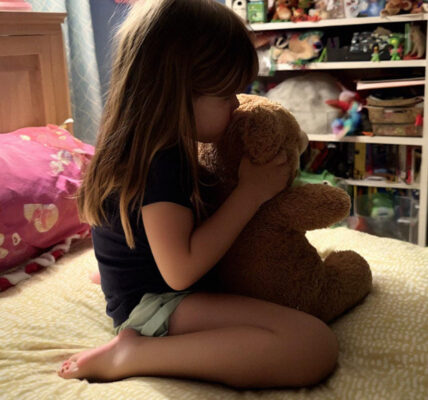At just two years old, most children are learning to run without stumbling, discovering new words every day, and filling their homes with endless chatter and curiosity. But for little Eloise, the last eight months have been a different kind of journey—one filled not with playgrounds and playdates, but with hospital rooms, long nights, and the battle against something no child should ever have to face.
Eloise has a brain tumor.
The diagnosis came like a thunderclap, sudden and devastating. Her parents had noticed the subtle changes first: moments of dizziness, stumbling, or unexplained fatigue. At first, they hoped it was nothing serious, but doctors soon delivered the words that would change their lives: their daughter had a tumor growing in her young brain.
From that day on, childhood became something Eloise had to fight for.
She has already endured rounds of tests, countless hospital visits, and procedures that would overwhelm even an adult. Yet, in her tiny body lives a spirit so fierce it astonishes everyone who meets her. Nurses talk about her laughter echoing through the hallways, a sound so pure it cuts through the weight of illness. Doctors note her stubborn streak—the way she refuses to let anyone underestimate her strength.
Her greatest comfort comes from her brother, her constant companion, and from the pets waiting at home—soft fur and wagging tails that remind her life still holds warmth and joy. In those small but powerful connections, Eloise shows everyone that hope is not something abstract. It is alive. It is present. And it shines in her smile.
Tomorrow, Eloise faces yet another trial. Surgeons will place a G-tube in her stomach—a feeding tube to help her stay strong enough for the long treatments ahead. For most parents, the idea of such a procedure for a toddler feels unbearable. But Eloise’s parents know that this step is essential for her survival, another tool in her fight.
It is not easy to watch your child prepare for surgery. The hospital walls feel cold, the machines intimidating, the waiting hours endless. But even here, Eloise’s spirit continues to glow. She plays with her dolls, she holds her brother’s hand, and sometimes, when her parents are crumbling under the weight of fear, she looks at them with eyes that seem to say: I’m still here. Don’t give up on me.
Eloise is more than a patient. She is a fighter.
Her story has already touched so many—neighbors who have organized meals, strangers who have sent cards, entire communities who have prayed for her healing. To them, she is not just a sick child; she is a symbol of resilience, a reminder of the strength found in even the smallest among us.
But Eloise’s journey is far from over. The surgeries, the treatments, the unknowns ahead—all remain daunting. And that is why she needs more than just medicine. She needs all of us standing with her. She needs prayers whispered in quiet moments, words of encouragement sent across miles, and love strong enough to carry her through the darkest nights.
Someday, her parents dream, Eloise will be able to look back at this time not as the years that stole her childhood, but as the battle she overcame—the story that proved her life was built on courage.
For now, they hold her close. They kiss her hair before the surgery. They whisper promises of playgrounds, of birthdays, of growing up surrounded by laughter. They remind her—and themselves—that she is not defined by her illness, but by her fire, her joy, and her unstoppable will to live.
Tomorrow, Eloise goes into surgery. Tonight, she is a little girl curled up with her brother, giggling at a shared joke, clutching her favorite stuffed animal. And even in the shadow of what is to come, there is light.
Because Eloise is here. She is fighting. And she is teaching all of us what resilience truly means.




